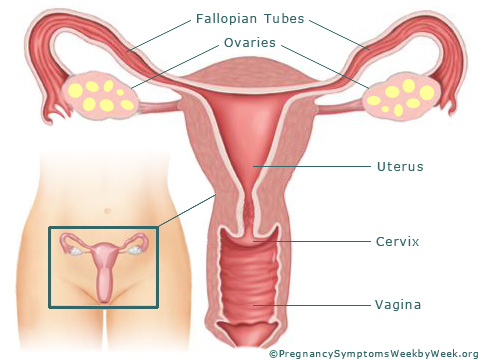1 Week Pregnant - Early Signs and Symptoms
The 280-Day Countdown of Your Pregnancy Starts Now
280 DAYS TO GO. . .
COMMON PREGNANCY SYMPTOMS FOR WEEK 1
You haven’t conceived yet, but we’re beginning our countdown here. Today is the first day of your period. If you conceive during this menstrual cycle, today will count as the first day of your pregnancy even though conception will not occur until about two weeks from now.

WHAT'S GOING ON INSIDE?
Ovaries hold eggs at different stages of development. At the end of next week ovulation occurs and a mature egg is released to the fallopian tube.
Fallopian tubes provide a pathway for the newly released egg to travel along on it's way to the uterus.
Your uterus contains a thick lining (endometrium) that accumulated during your last menstrual cycle and is discarded as you have your period.
Understanding how your menstrual cycle works may increase your chances of conceiving. Your menstrual cycle is a 28 day cycle consisting of various phases. Days 1-6 of your cycle is when you menstruate, or have your period. During this time the lining of your uterus that has built up over the last menstrual cycle is shedding. At the end of your period, from about day 7-10 of your cycle, you are relatively infertile while an egg is maturing within a follicle in one of your ovaries. From about day 11 to 19, you are going through your fertile phase where the egg has matured and you ovulate. Ovulation occurs mid-cycle, which is about day 14-16. The lining of the uterus starts to build up under the influence of progesterone and estrogen, in preparation for the implantation of a fertilized egg. Day 19-28 is your infertile phase, and if your egg has not been fertilized your body will begin its cycle again.
| Week 1 | NEXT - Week 2 >>

